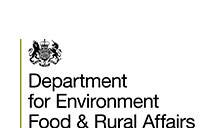Background on the Plastic Crisis
The plastic crisis is a pressing environmental issue that has substantial implications on both a local and global scale. Plastic waste has become a significant contributor to pollution, leading to detrimental effects on ecosystems, wildlife, and human health. With its resistance to degradation, plastic waste persists in the environment for hundreds of years, causing long-term damage.
Plastic pollution threatens marine and terrestrial habitats, as well as water sources, as it contaminates rivers, lakes, and oceans. The detrimental impacts of plastic waste include entanglement and ingestion by marine animals, which can lead to suffocation, injury, and even death. Additionally, microplastics have been found in drinking water, seafood, and even the air, raising concerns about their potential impact on human health.
The scale of the plastic crisis is alarming. It is estimated that approximately 380 million tons of plastic are produced globally each year, with a significant portion ending up in landfills or polluting natural environments. The United States is among the largest contributors to plastic waste, generating over 32 million tons of plastic waste annually.
Awareness of the plastic crisis has led to a growing movement and increasing pressure for governments and organizations to take action. The United States, recognizing the urgency of the situation, has implemented various measures to combat plastic pollution and reduce its environmental footprint.
In the following sections, we will delve into the efforts made by the United States to address the plastic crisis, including the implementation of policies and regulations, the improvement of waste management infrastructure, the promotion of sustainable alternatives, international cooperation, corporate responsibility, and public awareness. By exploring these aspects, we can gain insight into the comprehensive approach being taken to mitigate the plastic crisis and preserve our planet for future generations.
Strengthening Domestic Policies and Regulations
Efforts to Address the Plastic Crisis
The United States has recognized the urgency of addressing the plastic crisis and has taken significant steps to combat it. At the federal, state, and local levels, rigorous policies and regulations have been implemented to curb plastic waste and reduce its impact on the environment.
Comprehensive Plastic Recycling Programs
A key aspect of the United States’ approach to tackling the plastic crisis is the establishment of comprehensive plastic recycling programs. These programs aim to increase recycling rates, reduce plastic waste that ends up in landfills or oceans, and promote the circular economy.
Through these programs, the government has invested in the development of efficient recycling infrastructure, including sorting and processing facilities. Additionally, public awareness campaigns have been launched to educate individuals about the importance of recycling and proper disposal of plastic waste.
Taxation on Single-Use Plastics
To discourage the use of single-use plastics and encourage sustainable alternatives, the United States has implemented increased taxation on such products. Higher taxes on items like plastic bags or disposable cutlery incentivize consumers to switch to reusable options, reducing the demand for single-use plastics and ultimately decreasing plastic waste generation.
The revenue generated from these taxes is often allocated towards environmental initiatives, such as funding recycling programs or supporting the development of eco-friendly packaging alternatives.
Banning Certain Plastic Products
In an effort to further combat the plastic crisis, the United States has enacted bans on certain plastic products. Items like single-use plastic straws, Styrofoam containers, and plastic microbeads in personal care products have been targeted due to their significant environmental impact and lack of recyclability.
Such bans reduce the overall production and consumption of these problematic plastics, providing an opportunity for more sustainable alternatives to emerge and gain traction in the market.
The collective efforts of these policies and regulations demonstrate the United States’ commitment to addressing the plastic crisis. By implementing comprehensive plastic recycling programs, increasing taxation on single-use plastics, and banning certain plastic products, the country is taking significant strides towards reducing plastic waste and promoting a more sustainable future.
Enhancing Waste Management Infrastructure
Developing a robust waste management infrastructure is crucial in reducing plastic pollution in the United States. Effective waste management practices can ensure that plastic waste is properly disposed of and recycled, preventing it from ending up in our oceans and ecosystems. Here are some key steps that need to be taken to enhance waste management infrastructure:
Investing in Recycling Facilities
An important aspect of improving waste management infrastructure is investing in state-of-the-art recycling facilities. These facilities play a vital role in the recycling process, where plastic waste is sorted, cleaned, and processed into raw materials that can be used in the manufacturing of new products. By increasing the number and capacity of recycling facilities across the country, the United States can significantly improve its plastic recycling rates.
A comprehensive network of recycling facilities can ensure that a wide range of plastic products, including bottles, containers, and packaging materials, can be efficiently recycled. This not only reduces the amount of plastic waste sent to landfills but also conserves valuable resources by reusing the plastic in new products.
Promoting Innovative Technologies
In addition to investing in recycling facilities, promoting innovative technologies for plastic waste treatment is essential. Advanced technologies, such as chemical recycling and pyrolysis, can convert plastic waste into valuable products, including fuels or feedstocks for the manufacturing industry.
By supporting research and development in these areas and incentivizing the adoption of innovative technologies, the United States can further enhance its waste management capabilities. This would not only help in reducing plastic pollution but also create economic opportunities by making the plastic waste treatment process more efficient and sustainable.
Establishing Effective Collection Systems
An efficient collection system is a crucial component of proper plastic waste disposal. It ensures that plastic waste is effectively collected from households, businesses, and public spaces and transported to recycling or waste treatment facilities.
The United States can improve its collection systems by implementing comprehensive recycling programs and providing convenient and accessible recycling bins in public areas. Additionally, incentivizing participation in recycling programs through awareness campaigns and initiatives can encourage individuals and businesses to dispose of their plastic waste responsibly.
Furthermore, establishing partnerships with local municipalities and waste management companies can help create a coordinated and cohesive approach to plastic waste collection and disposal.
Ensuring Proper Disposal of Plastics
Proper disposal of plastics is crucial in minimizing their impact on the environment. To achieve this, it is essential to educate the public about the proper disposal methods for different types of plastic products.
Clear guidelines and labeling on packaging can help individuals identify if a plastic product can be recycled, composted, or needs to be disposed of in regular waste bins. Such information empowers individuals to make informed decisions and dispose of their plastic waste in an environmentally responsible manner.
In addition to educating the public, it is important to ensure that appropriate waste management infrastructure, such as landfill sites, are in place to handle plastic waste that cannot be recycled or treated with other technologies.
For more information on waste management infrastructure and its role in reducing plastic pollution, you can visit the following resources:
- U.S. Environmental Protection Agency – Recycling and Waste Management
- Plastic Pollution Coalition
- National Renewable Energy Laboratory
Promoting Sustainable Alternatives
The global plastic crisis calls for a shift towards sustainable alternatives to single-use plastics, and the United States is actively promoting initiatives to address this pressing issue. By focusing on the development and adoption of biodegradable and compostable materials, as well as encouraging businesses to adopt eco-friendly packaging options, the country is taking significant steps towards reducing plastic waste and its environmental impact.
Initiatives supporting sustainable alternatives
- Development of biodegradable and compostable materials: The United States is investing in research and development of materials that can break down naturally, reducing the persistence of plastic waste in the environment. These innovative materials offer a more sustainable alternative to traditional plastics.
- Promoting eco-friendly packaging options: Businesses are being encouraged to transition towards eco-friendly packaging solutions such as recycled materials, plant-based alternatives, or reusable options. This shift not only reduces plastic waste but also promotes a circular economy.
Benefits of promoting sustainable alternatives
The promotion of sustainable alternatives to single-use plastics brings several benefits to the environment and society. These include:
| Environmental benefits | Social benefits |
|---|---|
|
|
Encouraging industry adoption and consumer awareness
The United States recognizes the importance of both industry adoption and consumer awareness in driving the transition towards sustainable alternatives to single-use plastics. By engaging businesses and consumers, significant progress can be made in reducing plastic waste.
- Industry adoption: The government is actively partnering with businesses to encourage the adoption of sustainable packaging options. By offering incentives, tax breaks, and support for research and development, companies are incentivized to invest in eco-friendly alternatives.
- Consumer awareness: Educational campaigns and behavioral change initiatives play a crucial role in fostering responsible plastic consumption and disposal habits. By raising awareness about the environmental impacts of plastic waste, consumers can make informed choices in favor of sustainable alternatives.
Promoting sustainable alternatives to single-use plastics is a vital step in combatting the plastic crisis. By supporting the development and adoption of biodegradable and compostable materials, encouraging eco-friendly packaging options, and raising awareness among both industries and consumers, the United States is paving the way for a more sustainable and plastic-free future.
International Cooperation and Diplomacy: Working Together to Combat the Plastic Crisis
The global plastic crisis demands collective action and international cooperation to effectively address the mounting challenges posed by plastic pollution. The United States, as a key player in the global community, recognizes the need for partnerships and collaborative efforts to mitigate the environmental impact caused by plastic waste. Through its proactive approach, the United States aims to foster international cooperation, share best practices, and leverage technology and research initiatives to combat the plastic crisis.
Promoting Cooperative Measures
The United States plays a pivotal role in promoting cooperation among nations to establish a global framework for tackling plastic pollution. By engaging in dialogue and utilizing diplomatic channels, the aim is to encourage countries around the world to implement effective policies and regulations to reduce plastic waste generation and improve waste management practices.
Sharing Best Practices
Sharing knowledge and best practices is crucial in addressing the plastic crisis on a global scale. The United States actively engages with other nations to exchange information about successful initiatives and innovative approaches. Through collaborative efforts, countries can learn from one another and adapt effective strategies to their unique socio-economic and environmental contexts.
Technology Transfer and Research Collaboration
In order to accelerate progress in plastic waste management, the United States advocates for technology transfer and research collaboration among countries. By facilitating the exchange of technological advancements and research findings, nations can collectively develop and deploy innovative solutions for plastic waste treatment and recycling, setting new standards for sustainable practices.
Empowering Global Models
The efforts made by the United States in addressing the plastic crisis have a significant impact on shaping global models for plastic waste management. As the United States implements comprehensive policies, regulations, and waste management infrastructure, it serves as a powerful example for other nations to follow. The success of these approaches showcases the possibilities and potential outcomes of concerted efforts to combat plastic pollution.
Influencing International Debates
The United States’ commitment to addressing the plastic crisis also extends to advocating for stronger international regulations and conventions. Through active participation in global platforms and forums, the United States contributes to shaping international debates on plastic waste management and encourages nations to adopt ambitious goals and commitments in line with the shared objective of a plastic-free future.
Cooperative Research Initiatives
Collaborative research initiatives play a vital role in understanding the complex nature of plastic pollution and finding sustainable solutions. The United States actively supports and participates in research partnerships, allowing for a collective understanding of the impact of plastic waste and the development of innovative technologies, materials, and recycling methods.
Continued Efforts and Future Outlook
Addressing the plastic crisis requires ongoing commitment and a comprehensive approach. The efforts made by the United States in promoting international cooperation and diplomacy pave the way for a more sustainable future. By working together, sharing knowledge, and implementing effective strategies, nations can collectively combat plastic pollution and safeguard our planet for generations to come.
Corporate Responsibility and Public Awareness
Corporate responsibility plays a crucial role in tackling the plastic crisis and promoting sustainable practices among businesses. It is essential for industries to adopt transparency, accountability, and voluntary commitments to reduce the generation of plastic waste. By taking responsibility for their actions, corporations can contribute significantly to mitigating the environmental impact of plastic pollution.
Transparency is key to ensuring that businesses are held accountable for their plastic waste generation. By openly disclosing their plastic footprint and reporting on their efforts to reduce it, companies can demonstrate their commitment to addressing the plastic crisis. This transparency allows consumers to make informed choices and support businesses that prioritize sustainable practices.
Voluntary commitments from industries to reduce plastic waste generation are also vital. Companies can pledge to minimize the use of single-use plastics in their operations and supply chains, invest in sustainable packaging alternatives, and implement recycling programs. These commitments serve as important signals to stakeholders, including consumers and investors, that businesses are taking proactive steps to address the plastic crisis.
Raising public awareness is equally crucial in fostering responsible plastic consumption and disposal habits. Educational campaigns and behavioral change initiatives can play a significant role in informing the public about the environmental consequences of plastic waste and empowering them to make sustainable choices.
By providing accessible information, such as through educational websites, articles, and social media platforms, the public can learn about the detrimental effects of plastic pollution and understand how their individual actions contribute to the problem. Highlighting success stories and showcasing innovative solutions can also inspire individuals to adopt more sustainable practices in their daily lives.
To effectively raise public awareness, collaboration between governments, non-profit organizations, and businesses is essential. Joint efforts can result in impactful campaigns and initiatives that reach a wide audience. By working together, stakeholders can amplify their messages and drive meaningful change in consumer behavior.
It is important to note that addressing the plastic crisis requires a multi-faceted approach that involves both corporate responsibility and public awareness. Companies must take the lead in adopting sustainable practices, but individuals also play a crucial role by demanding eco-friendly products, reducing their plastic consumption, and proper disposal.
Useful Resources
- NRDC: Single-use Plastics 101
- U.S. Environmental Protection Agency – Recycling and Waste Management
- Ceres: Mobilizing Business Leadership for a Sustainable World
Global Impact and Future Outlook
Assessing the global impact of the United States’ strategies and actions in addressing the plastic crisis reveals the influential role the nation plays in shaping international debates on plastic waste management. The efforts made domestically not only contribute to global models but also set an example for other nations to follow in their pursuit of sustainable practices.
The United States’ comprehensive approach to addressing the plastic crisis has garnered attention and sparked conversations worldwide. By implementing rigorous policies and regulations, the United States is demonstrating its commitment to safeguarding the environment and mitigating the adverse effects of plastic waste.
Through initiatives such as comprehensive plastic recycling programs, increased taxation on single-use plastics, and the banning of certain plastic products, the United States has shown a strong determination to combat plastic pollution at various levels – federal, state, and local. These efforts have prompted other countries to evaluate and adopt similar measures in their own fight against the plastic crisis.
Furthermore, the United States actively promotes international cooperation in addressing the global plastic crisis. The nation recognizes the significance of collaboration and actively participates in sharing best practices, facilitating technology transfer, and engaging in collaborative research efforts. By fostering cooperation and knowledge exchange, the United States aims to catalyze impactful change on a global scale.
As the United States continues to prioritize corporate responsibility, it sets an example for businesses worldwide. By emphasizing the need for transparency, accountability, and voluntary commitments, the nation encourages industries to reduce plastic waste generation and adopt sustainable practices. This approach inspires businesses to incorporate eco-friendly packaging options, thereby contributing to the global reduction of plastic consumption and waste.
Central to addressing the plastic crisis is the focus on public awareness and behavioral change. The United States recognizes the power of education campaigns in promoting responsible plastic consumption and disposal habits. By continuing to invest in such initiatives, the nation seeks to emphasize the importance of individual actions in combating the plastic crisis and inspiring a global movement towards sustainable living.
In conclusion, the United States’ strategies and actions to combat the plastic crisis have significant global implications. Through its comprehensive policies, commitment to international cooperation, and focus on corporate responsibility and public awareness, the nation sets an example for other countries to follow. The ongoing efforts and dedication to combat plastic pollution globally are instrumental in shaping a sustainable future for our planet.
Category: Nature and Environment







Leave a Reply